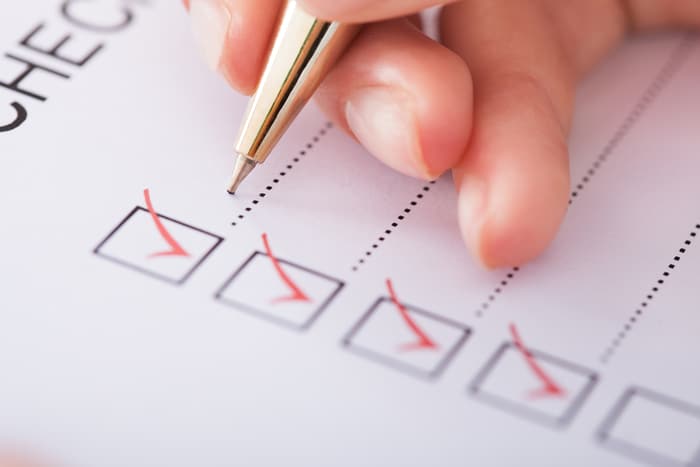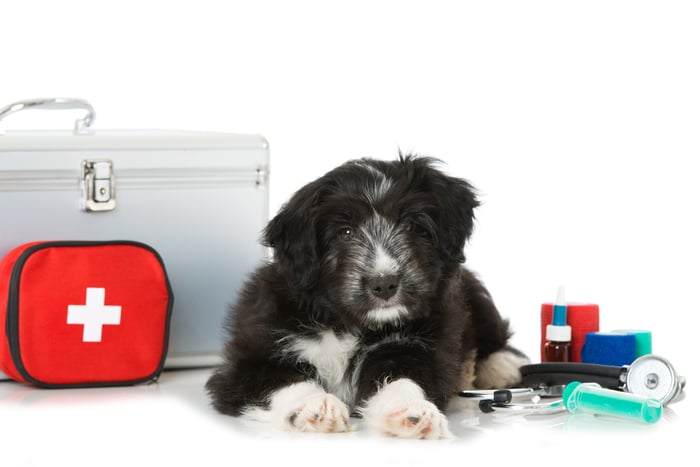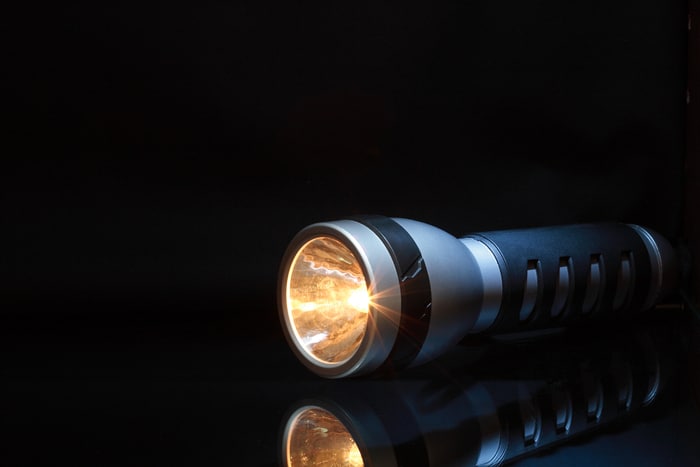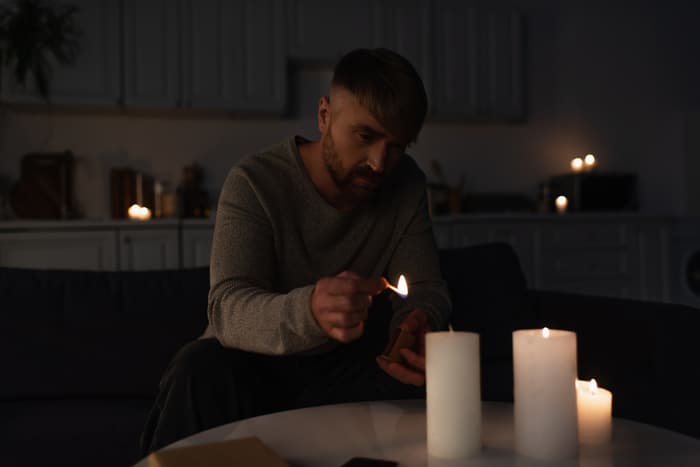Are you wondering how you can prepare for a blackout, but don’t know where to start?
Getting plunged into the Dark Ages all of a sudden is never fun, but luckily, there are some measures you can take before it happens to make sure you stay safe.
Being prepared for a power outage – especially one that occurs at night or in sweltering/freezing conditions can give you major peace of mind. In cases like these, a simple action plan with a few essential items is all you need.
Below, we’ve gone into a lot of depth to cover everything you need to know, so you don’t need to worry about ticking every last thing off of this list. Simply use it as a guide to give you a general idea of any major plans or backup resources you may want to add to your arsenal.
Keep reading to get ahead of the blackout!
Initial Checklist
Are you reading this on your phone because the power’s just gone out? Here’s what you should do right after it happens!

1. Check Your Breaker Switches
This an obvious tip, but one that people sometimes overlook. What appears to be a power outage may just be a breaker switch innocently going off. Unsure how to check for a bad breaker switch? There are many online resources you can check to understand how to do this step-by-step.
2. Unplug All Appliances
When there’s a power outage, there’s also a risk of a power surge. It’s wise to unplug every electric appliance that isn’t protected by a surge protector.
3. Ration Phone Use
During a modern power outage, your phone becomes your most valuable resource, so it’s key to make sure it’s always charged! Try to only ever have one mobile phone in the household at any one time, and prioritize using it to check for updates and information rather than entertainment.
4. Check Food Stock
For food in the fridge and freezer, do this as quickly as possible. Consider what food you’ll need to eat first and whether you’re going to have to plan a trip to pick up more supplies.
5. Keep Fridge & Freezer Closed
Once you know what’s inside them, keep the doors to your fridge and freezer closed as often as possible. Make sure everyone knows not to be checking for snacks every 10 minutes! If you do this, the fridge coolness can last up to 4 hours, and the freezer’s up to 48 hours.
6. Close All Windows and Doors
If either your air conditioning or heating system has gone off (depending on the weather), make sure to get all doors and windows closed. This will ensure that you’re not leaking out heat or precious cool air.
7. Check Toiletry/Essentials Supplies
Check if you’re going to be needing any vital supplies that may be worth venturing out to the store for. Anything from medical creams to sunscreen, think about what you typically use throughout the week and double-check you’ve got enough.
8. Make a Plan
For any kids as well as yourself, it’s important to have a plan of action and get everyone to band together to make it. Cover things like what foods you’ll be eating and when, any small jobs that will need doing (will pets be okay?), and whether you’ll need to venture out to the store for anything.
9. See This as a Challenge
It’s always easy to see a power outage as a big nuisance that’s just here to ruin your day. But try to look at it as a bit of a challenge, and tackle it accordingly. What’s the plan? How are you going to cope? Were you prepared enough? If not, what could you do to prepare in the future to ease the disruption?
This is not only a massive opportunity for you, but it’s also great for any children who are going to be without their electronics for a day. Depending on how you deal with this, you can spend the day bored terribly, or learn something from the event.
Preparation Tips
They say victory lies in preparation, so making sure that you’re always ready for the next blackout is the key to success. Here are some things you should always bear in mind.

10. Medical Devices – Backup Plans
Health should always be the top priority. If you or any loved ones rely on medical equipment, make sure you’ve got a backup plan for when the power goes out. A great way to ensure that you’re prepared is simply to contact the equipment manufacturer who will likely have some great recommendations or even provide backup systems for you.
11. First Aid & Emergency Supplies
As with medical devices, it’s important to have a standard First Aid kit handy. It’s never nice to think about needing one, but there’s great peace of mind that comes with having one ready. There are some great government tips online that can show you how to build and maintain the ideal First Aid kit for emergencies.
12. Backup Generators
Back-up generators are an irreplaceable lifeline when the power goes out. While a bit on the extreme side, they can really be worthwhile if you live in a region that gets frequent power outages or if you have vital appliances, like medical equipment, that need to remain functioning at all times.
While some people might be able to spend blackouts without one, owning a backup power generator is always a good idea.
13. Water Stocks
During a power outage, the local drinking water systems may be compromised. Keeping a minimum of about half a gallon per person per day is recommended. Base this number of days on previous power outages in your area. This is also vital if you live in an area with a hot climate, as you might be at a higher risk of dehydration.
14. Long-Term Food
A staple for anyone who likes being prepared. It’s always a good idea to have a stockpile of canned and non-perishable foods. Make sure you’ve got some variety, and especially a few options that you wouldn’t mind eating cold.
And don’t forget a manual can opener, too!
15. Backup Heater
You don’t want to get caught out without heat in the winter! Solve two problems in one by getting a propane heater for your garage that can double up as one of the best backup heating systems in the event of a power outage. Just make sure to have some ventilation available.
With so many options out there, it can be hard to choose the right generator to run in your garage. Luckily, we have some recommendations you might find useful!
16. Back up Cooker
Got a gas stove? Then you’re covered! You can still light the cooktop with matches if you ever need to cook any meals. Just make sure there are no gas leaks prior to lighting the fire.
If your cooking range won’t work without electricity, that’s ok too. A camping stove or even a BBQ grill can do a great job as a replacement.
17. Travel Chargers
Another great appliance with dual functions. Not only are travel chargers fantastic for long-distance trips, but they also give you vital amounts of additional charge when your phone is all you’ve got left to work with.
18. Flashlights
During a power outage, flashlights are much preferable to candles. Particularly since they are much less likely to set things on fire. Just make sure you have the right set of fresh batteries to make them work.
19. Battery Powered Lanterns
One step up from flashlights are battery-powered lanterns, which are much more suited to lighting whole rooms.
20. Batteries!
Try to always keep a good supply of AA and AAA batteries, and get out of the habit of just buying one box at a time as you need them. If they’re ever on sale at the store, buy a couple of boxes! You never know when you might need a surplus of them.
21. Toiletries & Essentials
Another example of products you should always have a small stockpile of. Don’t be living on the edge with just one roll of toilet paper left, people! You have a think about what products you use weekly, and make sure you’ve always got a good supply of them.
Toilet paper, deodorants, sun cream, creams/moisturizers, toothpaste, feminine hygiene products, etc.
22. Get Cash
You really, really don’t want to be stuck penniless because the local store’s card systems are also down. Make sure to always keep a small ’emergency’ stash. Smaller bills are typically best, and even traveler’s checks can work.
23. Back up Radio
Even a hand-crank one will work! Unless you’re happy to use up valuable phone charge, radio is probably the only way you’re going to be able to get news about what’s happened and how long you’ll need to endure these caveman-style conditions.
24. Playing Cards / Board Games / Toys
Or any other sources of entertainment to stay sane. Anything visible in low lighting is best – relying on Trivial Pursuit to be played by candlelight may not be the best idea!
25. Garage Door Release
If you’re lucky enough to have an electric garage door, make sure you know how to open it manually. This is typically done via a release cord that just needs to be pulled down.
26. Sleeping Bags
For freezing climates, having a spare sleeping bag or set of blankets for everyone might be worth it. When the power’s out, these are much more efficient at keeping you warm than a standard bed duvet.
27. Safety Lights
Safety lights are simple, small chargeable devices that plug into your wall power outlets. Place them in vital areas, especially near stairs. Just make sure you’re not running them accidentally during the day, as you want to keep them charged for when the sun goes down.
28. Pet Supplies
Making sure Fido’s not going to be going hungry is also key! As with batteries and essentials, always try to pick up a small stockpile of pet supplies when they’re on sale. They’ll always come in handy in situations like these.
29. Alternative Cooling Options
Cool rooms can be very hard to achieve without electricity, so make sure you’ve got some good backup options. A good battery-operated fan, like those offered by Vornado, can make a world of difference.
Alternatively, you can always try to get ‘cooling towels’, which are an incredibly simple way to provide some freshness. All you have to do is apply them to effective areas, such as your neck, wrists, head, and feet.
30. Keep Your Chimney Going
If you’ve got a wood-burning fireplace, make sure to have the chimney cleaned in the autumn, so there won’t be an issue with creosote build-up (which can be a fire hazard).
31. Mind the Elderly
Finally, think about any elderly relatives who might need a bit of help when it comes to preparations like these. Just check that they’ve considered what they’ll do in the event of a power outage and whether you can be of any help in making sure they’re ready.
What to Do in a Power Outage
Once you have the basics covered, it’s always a good idea to try to diagnose exactly how bad the situation is and take steps towards getting things back to normal. Here’s what you can do.

32. Check if the Whole Grid Is Out
Have a look around to see if the whole neighborhood is without power. Talking to other people and hearing about their experiences can help you estimate how long the problem will last.
33. Do Phone Lines Still Work?
A power outage doesn’t necessarily mean that phone lines are down – check and see if you’ve still got a dial tone.
34. Report the Outage to Your Power Company
Once you know the above two points, it’s important to report the outage to the power company. This can both make them aware of the issue in case they’re not already and also help you estimate how long you’ll be without power. Try to have your utility number ready, too, as it can be a big help to them.
35. Plan Out Immediate Food Use
Once you’ve got a good idea of what food supplies you have available, create a rough plan of what you’ll be eating first. Remember that a (closed) fridge will typically keep a cool temperature for up to 4 hours, and a freezer for up to 48 hours. Turn it into a challenge! What’s the best recipe you can make? Just don’t risk anything.. getting ill in a power outage is NOT fun.
Check out this guide by TheOrganicPrepper on how long different food items last.
36. Call Those Closest to You
Not just elder relatives, but anyone you know in the neighborhood and any close friends you have. Check if it’s just your neighborhood, and make sure they’re going to be alright if the temperature is looking to be very hot or cold.
37. Prioritise Lantern and Flashlights
Try to get everyone in one room, so that you need to use a minimal amount of battery-powered lighting. Candles can be great for ambiance, but it’s best not to turn your living room into what looks like a strange religious ceremony.
38. Gas Stove, Carefully Use Matches
We touched on this previously, but if you’re using a gas stove – be extra careful when lighting it with a match.
39. Check on Your Neighbours
As well as checking to see if the neighbors look like they have power, it’s worthwhile giving them a quick neighborly hello. Especially for any seniors that you know in the area, this can be great for sharing tips and laughing about the situation, and you never know if someone may really need your help.
40. Get Out of the House!
Power outages have this miraculous effect of making time go extremely slowly. Especially if you’re stuck at home all day. Even if it’s just for a walk around the block, it’s a great idea to just get outdoors and distract yourself for a while. Walking to a local store or community, a bike ride, an adventure to the local park with the kids – anything works.
41. Consider the Cold
If it’s freezing outside, keep everyone in one room. Grab all of the blankets and covers that you can, and keep the doors closed. You’ll be surprised how effective shared body heat can be!
42. If It’s Too Cold
If it’s absolutely freezing, don’t feel like you need to stick around. Plan your route carefully and expect a bit of chaos on the roads, but booking a hotel or staying with relatives could save you from a long night of discomfort.
43. If It’s Too Hot
Alternatively, if it’s sweltering outside, try to use natural cooling methods to your advantage. Open the windows in the morning to recycle your air, then close them as the afternoon heat rises. Since hot air rises, stay downstairs as much as possible.
Plan to take a nap in the heat of the afternoon, and head out to air-conditioned community buildings if possible.
44. Only Drive When Necessary
As we’ve already alluded to, situations like these can cause road traffic to break down. Not just because of failed traffic lights, but drivers acting erratically just due to the situation. If you really need to make it to a store, try calling beforehand to make sure they’ve got backup power and are still open. If you do need to drive, try to take quieter roads, and plan for extra journey time.
45. If Possible, Purchase Bagged Ice
If you do venture out to a store, bagged ice can be an absolute luxury when you don’t have electric cooling. Place a bag inside your fridge/freezer to extend the lifespan of food inside, and place a bucket of ice under a battery-operated fan for a DIY air conditioner.
46. Take the Time to Reflect
A sudden bout of free time can be put to some great use. Try sitting down with pen and paper, and reflecting on how your day was going, what your plans are once the power comes back on, and just generally check on your and your family’s well-being
47. Stay Active
The last you want is to be lying awake at night full of energy because you’ve been stuck doing nothing all day. Take the opportunity to go out for a walk or run, which will help you feel tired once the sun goes down. An outage is 10x worse at night when there’s nothing to do.
What NOT to do in a Power Outage
Having covered the main dos when the power is out, let’s now talk about a few don’ts that you should avoid in order to make the blackout safer and less tedious.

48. Rely on Candles
Candles can cause fires; don’t light the whole house up! The odd one or two for ambiance can be great, but using a lot means there’s a high chance that something will happen. This could be anything from an excited dog or curious child knocking one over, to just forgetting to blow them out at night.
49. Constantly Opening Fridge/Freezer
Write down what supplies you have, and make a plan about what you’ll eat and when. Constantly checking what you have means that everything will get rapidly warmer – while this is obvious to most, make sure everyone in the house knows to stay out!
50. Recharging Your Devices in Your Garage
Using the car to recharge any portable devices can be a lifesaver, but do make sure that you’re not leaving the engine running while the car’s in an enclosed space. Ideally, get it out onto the driveway to prevent fuming up your garage.
51. Driving Unless Necessary
If the power outage has affected the whole neighborhood, it probably means all the traffic lights are down, too. We really don’t recommend driving anywhere unless it’s essential, and if you do, expect chaos at any major intersections. Especially since scenarios like these can tend to make certain people act a bit… weird.
52. Stay Cooped up Indoors
Waiting out a power outage can become mind-numbingly boring, so for sanity’s sake, try to avoid just being cooped up all day! Take the opportunity to go for a walk around the neighborhood, stretch your legs, and get some fresh air.
53. Use Oven as Source of Heat
Ovens aren’t built to act as heating appliances, and the hot air that comes out of them may not be overly healthy to breathe in.
54. Go Near Any Working Crews
If you see crews working on the street, don’t rush up to start asking them questions! Not so much because it slows down their work to answer everyone’s questions, but they also have to stop what they’re doing when a bystander gets too close.
What to Do Once the Power Is Back
Now that the blackout’s over, double-check these final tips to make sure you’re ready for the next one, or in case the power goes out again.
55. Don’t Plug Appliances Straight Back In.
Wait 10 to 15 minutes, in order to avoid getting caught by any surges as everything comes back online.
56. Clear Out Perished Food.
Get rid of any food that was unfortunate enough to not survive the power outage. You can save anything in the freezer that’s lower than 40 degrees Fahrenheit (4.44 °C) and still has ice crystals on it – however, when in doubt throw it out!
57. Reset Clocks, Timers, Alarms
Especially important for any timed appliances, like cooling/heating/lighting systems.
58. Restock Food, Toiletries, Emergency Kit Items
Go through anything that you’ve used and make sure you’ve got plenty of that item left over for next time. For the emergency kit, double-check the list of must-haves using the government online resources provided earlier.
59. Do Not Enter a Flooded Basement or Use Flooded Appliances
If the power outage was due to flooding, be very careful around electric appliances and a flooded basement. When in doubt, call a qualified electrician.
Conclusion
That about covers it!
Blackouts are never fun, but they’re typically neither dangerous nor last too long. However, it’s always a good idea to be prepared for a major event.
Hopefully, the tips provided above have made the dos and don’ts clearer, so that the next time the power goes out in your area, you know exactly what to avoid. In most cases keeping a First Aid kit handy, and owning some AA and AAA batteries for your flashlights and backup lights, should do the trick.
Thank you very much for sticking with me all the way to the end. If this article was helpful, and you want to keep the learning going, please check out our other incredible resources below. We have all sorts of solutions for everyday appliance-related issues.
Have a great week!
— Craig.
Conclusion
And that’s it! Our 59 top tips for preparing for and managing power outages.
By following this guide, a power outage should be nothing more than a minor inconvenience to you. Or even a challenging adventure with the kids.
We research plenty of sources to try and cover absolutely everything, but if you’ve got any ideas for a tip we might have missed, we’d love to hear your feedback in the comments below – or via our contact page.
Thanks for reading!
Sources
- Ready.gov – Power Outages
- Energy.gov – Homeowners: Respond to Power Outages
- WikiHow – Make a Power Outage Bearable
- GetPrepared.gc.ca – Power Outages – What to do?
- Art of Manliness – What to do during a blackout
- TheOrganicPrepper – Summer Power Outages







